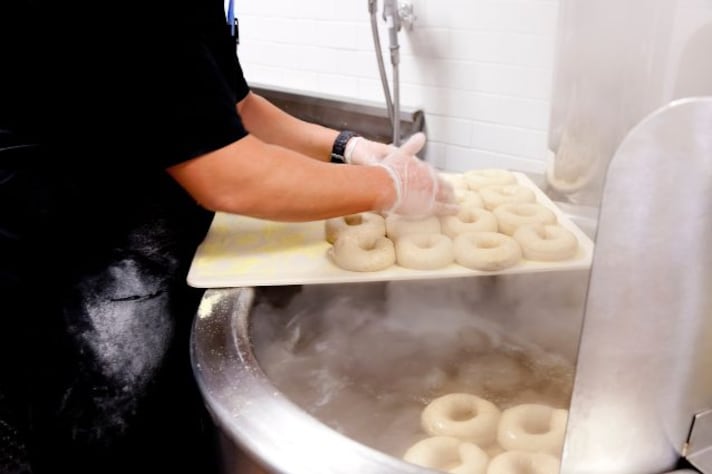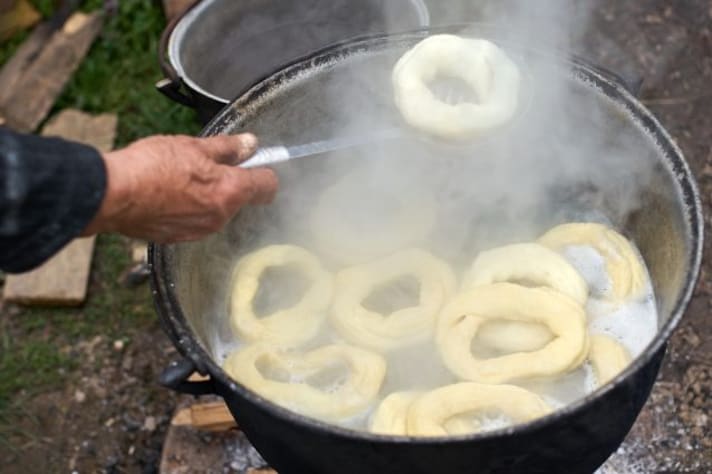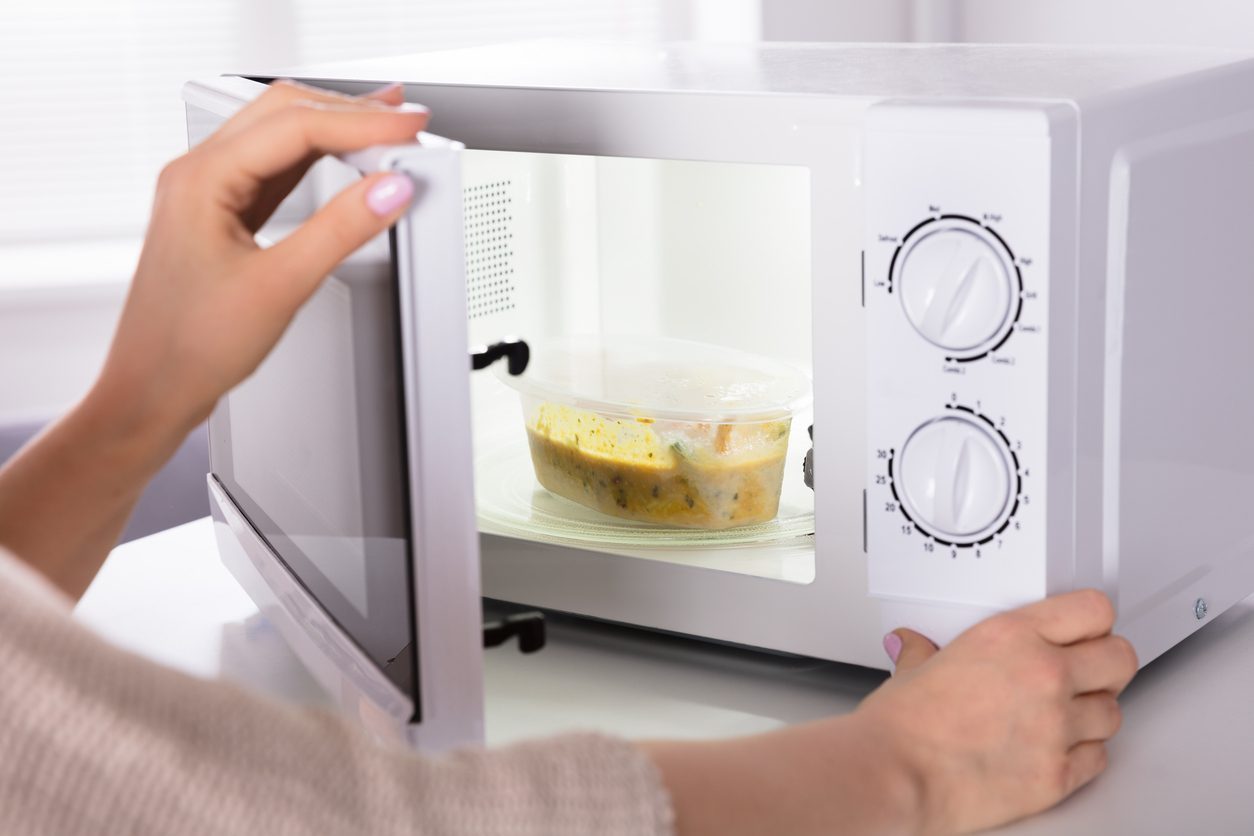Here’s Why You Should Never Boil Bagels in Unseasoned Water
Boiling bagels in unseasoned water is a mistake because it results in bland flavor and a lackluster texture. Salt is essential for seasoning the crust and strengthening the dough’s gluten, giving bagels their signature chew. You can also add ingredients like malt syrup or honey, that can further enhance the flavor, making the bagels more authentic and satisfying.

When you think of bagels, you probably picture that perfect golden crust, with a chewy, airy interior that begs for a smear of cream cheese or a pile of lox. But if you're one of those people boiling your bagels in plain, unseasoned water—without salt or any other flavoring—you may be missing out on the full potential of what a bagel should be. While this seems like a small mistake, the effects of boiling in unseasoned water can have a surprisingly big impact on your bagel’s texture and flavor. And frankly, it’s an easy fix to ensure that your bagels turn out as good as they can be. Here’s why seasoned water makes all the difference.
Boiling Bagels Is The Crucial Step in Creating the Perfect Crust
Before diving into the reasons why unseasoned water is a mistake, it’s important to understand why boiling is so key to the bagel-making process. The boiling step is what helps create that signature chewy, glossy crust. When bagels are boiled briefly before baking, the exterior forms a layer that locks in moisture, allowing the interior to stay light and airy. Without this step, you’ll end up with bagels that might look like bagels but taste and feel more like bread rolls.
The Role of Salt in Boiling Water
One of the most critical components of bagel water is salt. While it might seem like an unnecessary step, salt in the boiling water is vital for seasoning the bagel’s crust. When bagels are dropped into boiling water, the salt penetrates the outer dough, contributing to both flavor and texture. Without salt, the bagel’s crust can taste bland and one-dimensional. In fact, the unsalted bagel could end up tasting more like a doughnut—sweet, but lacking the savory satisfaction that defines a real bagel.

The Science Behind Salt’s Effect on Texture
Aside from flavor, salt also plays an essential role in the texture of the bagel. When salt is added to boiling water, it helps tighten the dough, giving the bagel its characteristic chewy bite. Salt has a way of interacting with the proteins in the dough, strengthening the gluten network, which leads to a denser, more satisfying chew. Without it, you risk making a bagel that’s too soft, lacking that hearty texture that makes bagels stand out from other baked goods.
This gluten-strengthening effect is one of the reasons why some bakers opt to include a little bit of malt syrup or honey in their bagel boiling water as well. The sugars in those ingredients can contribute to a glossy, golden crust, but salt remains the unsung hero when it comes to the integrity of the bagel's structure.
Why Boiling Bagels in Plain Water Can Lead to Disappointing Results
If you’re still not convinced, let’s break down what happens when you boil bagels in unseasoned water. First, you’ll end up with a bland crust that’s missing the savory flavor profile you’d expect from a bagel. The chewy, satisfying bite will be absent, leaving you with something that could be mistaken for a slightly overcooked dinner roll or a subpar pretzel. You’ve essentially made a bagel impostor.

Secondly, unseasoned water fails to enhance the bagel's texture. Without salt, the dough’s proteins don't interact as effectively, and the bagel’s crust won’t have that familiar chewiness. If you’ve ever bitten into a bagel that feels more like soft bread than a dense, chewy round of deliciousness, chances are it was boiled in plain water.
The Perfect Bagel Boiling Formula
Now that we’ve established the importance of salt, let's talk about other ingredients you can add to your boiling water for extra flavor and a touch of sweetness. Many recipes call for a splash of malt syrup, which helps achieve a darker, slightly caramelized finish on the crust, along with a subtle sweetness. Others might suggest adding a bit of honey for a softer, slightly less intense flavor. These ingredients complement the salt and further improve the texture of the bagel, giving it a more complex and delicious profile.
It’s not just about making the bagel taste better; it’s about enhancing the entire bagel experience. Think of it as building a solid foundation—you wouldn’t build a house without first ensuring that the base is secure. Similarly, you can’t expect a perfect bagel without first boiling it in seasoned water.
;Resize,width=767;)


;Resize,width=712;)
